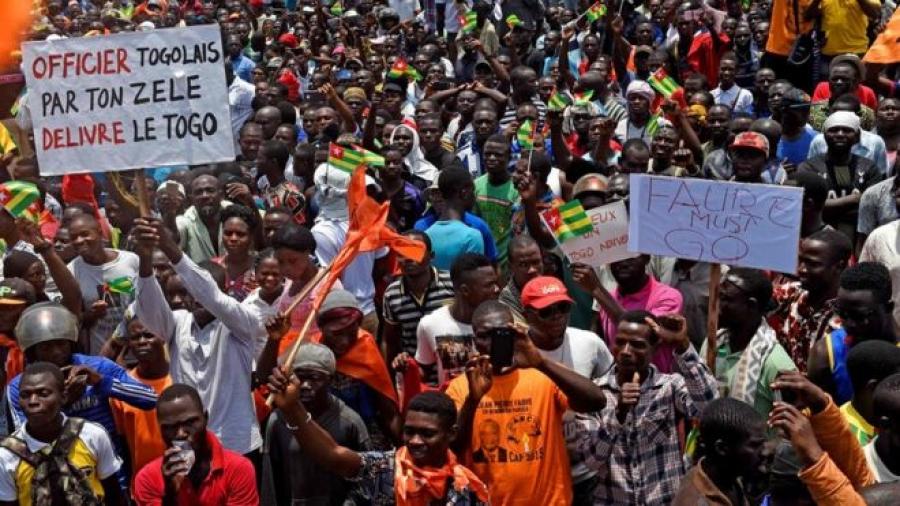
Members of the Togolese community in Senegal gathered in Dakar on Saturday to denounce what they describe as a sharp authoritarian turn in their home country, following deadly political unrest in Togo in late June.
The demonstration was held in response to what critics call a “constitutional coup” and escalating repression by Togolese authorities.
At least seven people were reported killed during mass protests in Lomé on June 26, 27, and 28, sparked by controversial constitutional reforms that opposition voices claim were designed to consolidate the current regime’s grip on power.
Outraged by the events, the Togolese diaspora in Senegal took to the streets of Dakar to express solidarity with those facing violence back home and to call for international accountability.
“The Chadian people are not fooled. They understand that it is a voice they are trying to silence, not a crime they are trying to prosecute,” declared Claudia Hoinaty, vice-president in charge of women’s engagement for Les Transformateurs, as she read a statement at the rally.
Prominent Senegalese civil society figures voiced their support for the protesters.
Guy Marius Sagna, a well-known activist, called out the silence of the Economic Community of West African States (ECOWAS), accusing the regional body of turning a blind eye to democratic backsliding.
“This is a constitutional coup, and the lack of response from regional institutions is unacceptable,” Sagna told Sud FM.
Alioune Tine, another influential voice in Senegalese civil society, joined the chorus of condemnation.
“Whether civilian or military, anyone who seizes power by force must be punished,” he stated. He warned that the situation in Togo should serve as a “wake-up call” for West Africa, highlighting the vulnerability of democratic institutions across the region.
Saturday’s demonstration, marked by chants, signs, and impassioned speeches, reflected the growing transnational concern over Togo’s political trajectory.
Protesters urged the international community to impose sanctions on those responsible for the repression and called for stronger action in defense of human rights and democratic freedoms.
“The Togolese in Senegal will not remain silent while their people suffer,” said one organizer. “This march is only the beginning.”
As tensions remain high in Togo, the mobilization of the diaspora, bolstered by solidarity from Senegalese civil society, underscores a broader regional call for accountability, justice, and democratic governance.



